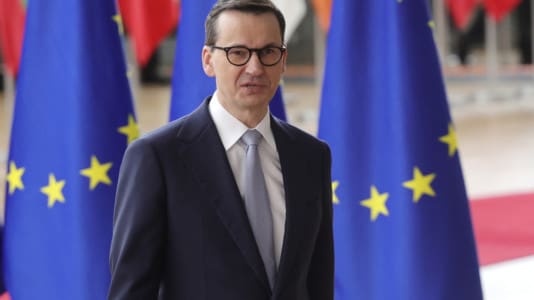The Finnish parliament approved on Tuesday the proposed right-wing coalition government, voting in favor of National Coalition Party (NCP) leader Petteri Orpo becoming the country’s next prime minister.
Conservative parties stormed to victory in the parliamentary elections held in Finland on April 2, with Orpo’s NCP and the right-wing populist Finns Party, led by Riikka Purra, becoming the two largest parties in parliament.
Together, they have formed a coalition government with two minority parties, the Swedish People’s Party and the Christian Democrats. Thus, Finland follows Sweden and Italy in drifting to the right of the political spectrum.
The conservative coalition replaces former Prime Minister Sanna Marin’s administration, which comprised her Social Democratic Party (SDP), the Center Party, the Greens, the Left Alliance, and the Swedish People’s Party.
Marin announced her intention to step down as SDP leader following April’s election when her party came third in the polls.
“I warmly thank you for the confidence you’ve shown me,” Orpo told lawmakers in the chamber following the vote.
It is understood that under the coalition agreement, Finns Party leader Riika Purra will become the country’s new finance minister, while NCP deputy leader Elina Valtonen will head up the foreign ministry.
Its objectives will be to cut the government’s budget deficit by both reducing public spending and slashing taxes to supercharge the private sector and encourage foreign investment.
Finland’s immigration policy will also shift firmly to the right, under the instruction of the Finns Party, which insisted on obtaining special influence over the issue.
“I am delighted that together with our negotiating partners we have agreed on an immigration package that can rightly be called a paradigm shift in immigration policy,” Purra told reporters following the negotiations.
She revealed the coalition agreement included plans to cut refugee quotas, increase the threshold for migrants to obtain work visas to come to Finland, and extend the duration foreign nationals need to reside in the country before they can apply for citizenship.
The coalition agreement revealed “the government will make international protection temporary in nature” and will be limited to just three years. Criminal offenses by migrants will be dealt with in the strictest manner, with those found guilty of a serious crime having their protection revoked and being banned from the country.
“The government will examine the possibilities to impose a prison sentence as punishment for illegal stays in the country, taking into account the impacts of this on general government finances,” the agreement said.
“Rejected asylum applicants will return, or will be returned to, their countries of origin as soon as possible,” it added. “The government will ensure that the asylum process will not become a channel for job-seeking and labor immigration.”
It is understood the country’s foreign aid budget will also be cut, and its defense spending will increase following Finland’s accession to NATO.
The coalition agreement also flirted with Euroskepticism, insisting the government “wants the EU to play big on big issues and small on small issues.
“Finland advocates for a clear division of competencies between the union and the member states, which should not be expanded with a new interpretation of the treaties,” it added.





